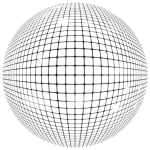Delta-8 THC, a synthetic kratom potion, offers a unique high with lower anxiety compared to Delta-9 THC. Though popular for relaxation and pain relief, limited research on long-term effects raises concerns. The legal status of delta-8 kratom is complex, creating a mixed landscape. Users should exercise caution, especially with mental health conditions, and make informed decisions about this alternative cannabis compound.
Delta 8 THC, a synthetic cannabis-like compound, has gained recent attention due to its psychoactive effects, offering a unique alternative to traditional cannabis. This article delves into the world of Delta-8 THC, exploring its properties, mind-altering capabilities, and distinctions from conventional cannabis. We also examine its legal status, accessibility through kratom potion, and potential benefits, risks, and considerations for users in today’s market.
- Understanding Delta-8 THC: The Synthetic Compound
- Psychoactive Properties and Effects on the Mind
- How Delta-8 THC Differs from Traditional Cannabis
- Legal Status and Accessibility of Delta-8 Kratom Potion
- Potential Benefits, Risks, and Considerations for Users
Understanding Delta-8 THC: The Synthetic Compound
Delta-8 THC, a synthetic compound, has gained attention as an alternative to traditional cannabis. It’s important to understand that this substance is not naturally occurring; instead, it’s a lab-created mimic of tetrahydrocannabinol (THC), the primary psychoactive component in cannabis plants. While often marketed as a “kratom potion,” Delta-8 THC operates on the same receptors in the brain as its natural counterpart, offering similar effects, including relaxation, altered perception, and potential pain relief. However, it’s crucial to note that these effects can vary greatly among individuals due to factors like tolerance and metabolism.
Unlike Delta-9 THC, its more well-known cousin, Delta-8 has a lower potential for anxiety or paranoia. This has led many to consider it a milder option with fewer side effects. However, as with any synthetic substance, there are concerns regarding long-term effects and regulation, as the research on Delta-8 THC is relatively limited. As consumers explore this new compound, understanding its unique properties and differentiating it from natural cannabis is essential for making informed decisions.
Psychoactive Properties and Effects on the Mind
Delta 8 THC, a synthetic compound derived from cannabis, has gained attention for its psychoactive properties similar to tetrahydrocannabinol (THC), the primary psychoactive component in marijuana. While not as well-studied as traditional THC, Delta 8 offers unique effects on the mind. Users report experiencing heightened senses, increased creativity, and a sense of relaxation without the same level of anxiety or paranoia often associated with high-potency THC.
The kratom-like qualities of Delta 8 are attributed to its partial activation of cannabinoid receptors in the brain, leading to a balance between euphoria and cognitive function. Unlike traditional cannabis, which can induce a sedated state, Delta 8 encourages a more alert and focused high, making it appealing for those seeking a subtle yet engaging psychoactive experience. This compound’s ability to modulate mood and sensory perception has sparked interest among users looking for alternative recreational or therapeutic experiences.
How Delta-8 THC Differs from Traditional Cannabis
Delta-8 THC, a synthetic compound derived from cannabis, offers a unique experience compared to traditional cannabis strains. While both interact with our bodies’ endocannabinoid system, Delta-8 has distinct properties. Unlike the more well-known Delta-9 THC, which is responsible for marijuana’s psychoactive effects and higher in concentration, Delta-8 is relatively rare in natural cannabis plants, typically found in trace amounts.
The kratom potion of Delta-8 provides a milder high, often described as more clear-minded and less anxiety-inducing than Delta-9. This difference stems from its chemical structure; Delta-8 binds to both CB1 and CB2 receptors in the brain and body, but with a lower affinity than Delta-9, leading to a milder effect. As a result, users may experience heightened senses, increased relaxation, and potential therapeutic benefits without the intense euphoria or cognitive impairment sometimes associated with traditional cannabis use.
Legal Status and Accessibility of Delta-8 Kratom Potion
The legal status of delta-8 kratom potion has been a topic of shifting regulatory landscapes across various jurisdictions. In many places, it exists in a legal grey area due to its similarity to both kratom and cannabis. While some regions have outright banned delta-8 products, others have embraced their potential as an alternative to traditional cannabis compounds, allowing for limited sales and research.
Accessibility for consumers varies widely depending on location. Online platforms and specialized retailers offer kratom potion products, making them easily available in certain markets. However, this accessibility is not universal, creating a patchwork of legal protections and market access for those interested in exploring delta-8’s psychoactive effects.
Potential Benefits, Risks, and Considerations for Users
Delta 8 THC, a synthetic compound derived from cannabis, has gained attention for its psychoactive properties resembling those of traditional cannabis but with potential differences in effects. Users often explore this kratom-like potion for various reasons, including seeking relaxation and stress relief. Some claim it offers a more clear-headed high compared to Delta 9 THC, making it appealing for individuals looking to maintain cognitive function while enjoying a recreational experience.
However, as with any substance, there are risks and considerations. Potential drawbacks may include anxiety, paranoia, and impaired coordination, especially in higher doses. The lack of extensive research on Delta 8’s long-term effects necessitates caution, particularly for users with pre-existing mental health conditions or those susceptible to psychosis. Additionally, the regulatory landscape surrounding Delta 8 THC products is evolving, leading to concerns about product quality and safety, further emphasizing the importance of informed decision-making and responsible usage.
Delta-8 THC, a synthetic cannabis-like compound, offers unique psychoactive effects that set it apart from traditional cannabis. While its legal status varies globally, users seek out this kratom potion for its potential benefits, such as relaxation and pain relief. However, it’s crucial to be aware of the risks and considerations, including purity concerns and varying potency levels. Understanding these aspects is essential in making informed decisions regarding the use of Delta-8 THC products, like the kratom potion, ensuring a safe and enjoyable experience.





